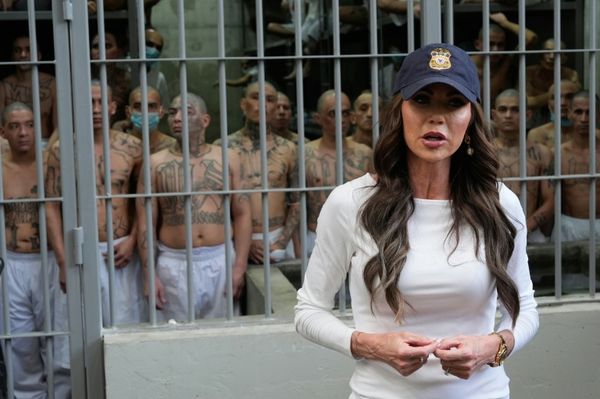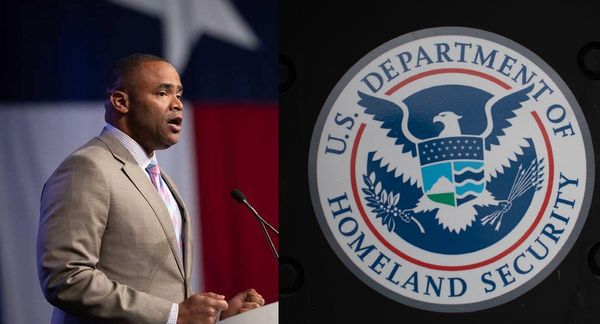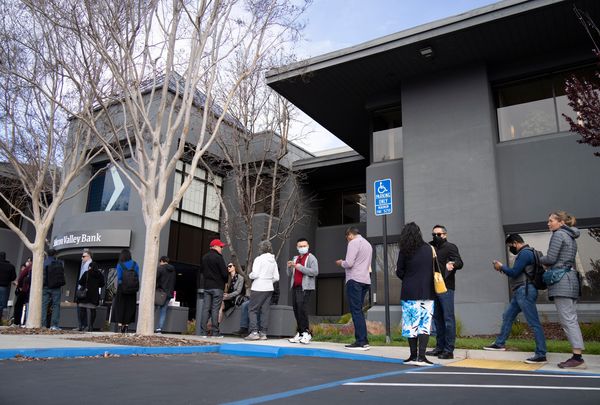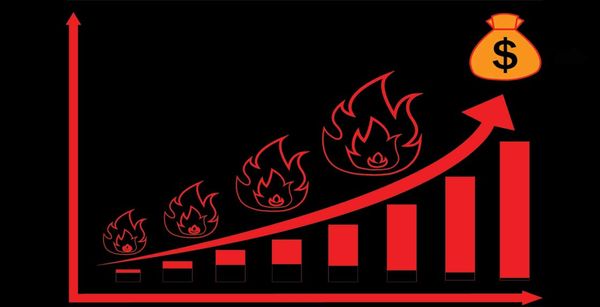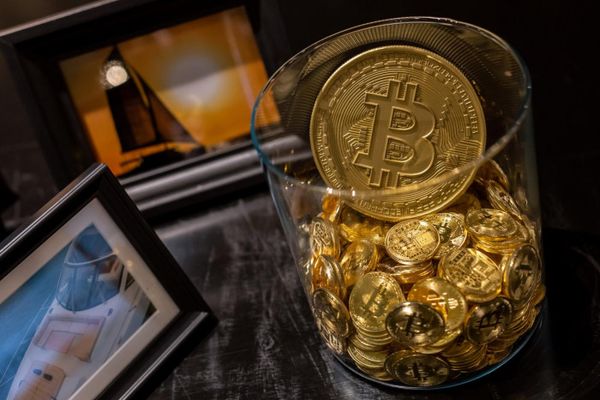Bankruptcy is a real and rising risk again — retraining investors to look for warning signs a company is about to collapse. Failing to spot a bankruptcy can be catastrophic.
Corporate bankruptcy filings jumped in March, hitting the highest level in the first three months of a year since 2010, says S&P Global Market Intelligence. SVB Financial Group, the holding company of failed Silicon Valley Bank, is the most dramatic example as it's the second-largest bank failure in U.S. history.
But already this year, 183 companies filed for bankruptcy protection, the highest in a comparable period in 12 years. And financials are only the No. 2 sector for the most bankruptcy filings, S&P Global Market Intelligence found. Rapidly rising interest rates are putting pressure on many companies' finances.
"The collapse of Silicon Valley Bank was one of several major bank failures in the month, placing heightened scrutiny on the sector," said S&P Global Market Intelligence's Chris Hudgins in the report.
Huge Risks For Investors
Investors are still on the hook for massive losses in bankruptcies. That's true even in cases where banks' depositors, with more than the $250,000 FDIC in an account, are bailed out.
Three out of the five companies involved in the largest bankruptcies this year are publicly traded, including SVB Financial, Avaya Holdings and Party City. And the losses investors suffered on their shares are mind boggling: averaging 94%.
Take SVB Financial. The banking company considered an industry leader only a year ago announced its bankruptcy on March 17. And just this year, the stock cratered 99.7%. Yes, it's true that the Federal government is backing up large depositors. But for shareholders, their money invested in the company's stock is gone.
It's a similar story with the two other giant companies with $1 billion or more in liabilities to file for bankruptcy. Tech firm Avaya announced its bankruptcy on Feb. 14. And shares are down 99.9% this year. And consumer discretionary firm Party City announced its bankruptcy plan on Jan. 17. Meanwhile this year, the shares of the seller of party supplies like masks and confetti are down 82%.
Given the financial peril of bankruptcy, it's only natural to wonder which companies face the highest risk.
Sizing Up Bankruptcy Risk
It's impossible to know if a company will fail, just ask investors in SVB Financial. But there's a nearly four-decades-old tool that can give you an early warning of trouble: Altman Z-score.
The Altman Z-score is a ratio that directionally points you to how much financial stress a company faces. The lower the score and closer it is to 0, the more likely severe financial stress is. Usually the ratio is applied to industrial firms.
Roughly 75% of the stocks in the S&P 1500 carry valid Z-Scores, meaning all the data on the company needed to calculate the ratio is available, says S&P Global Market Intelligence. Not surprisingly, some of the lowest scores go to tech companies, where many of the assets are intangible.
Leading with the dubious distinction of having the lowest positive Z-Score is LivePerson. The company sells online messaging systems to companies looking to interact with customers digitally. The company's Z-Score is about as close as you can get to zero: 0.026.
The fact the company is struggling isn't a total surprise. Shares are down 56% just this year. And the company is seen losing another $100 million on a GAAP basis this year, after losing $225 million in 2022. Meanwhile, it burned through more than $100 million in cash in the past 12 months, leaving it with only $391 million in cash left.
Again, a low Altman Z-score doesn't guarantee a company will fail. But it certainly doesn't look good, and given investors stand to lose close to everything upon a firm's bankruptcy, it's important to understand the risks.
Lowest Altman Z-Scores In S&P 1500
Scores closest to zero indicate the most financial stress
| Company | Ticker | YTD % ch. | Altman Z-score | Sector |
|---|---|---|---|---|
| LivePerson | -56.3% | 0.026 | Information Technology | |
| 8x8 | -10.8% | 0.033 | Information Technology | |
| Xperi | 22.4% | 0.125 | Information Technology | |
| Cars.com | 39.9% | 0.189 | Communication Services | |
| Carnival | 21.0% | 0.197 | Consumer Discretionary | |
| Equitrans Midstream | -23.3% | 0.199 | Energy | |
| Royal Caribbean Cruises | 23.9% | 0.215 | Consumer Discretionary | |
| Gogo | -1.6% | 0.317 | Communication Services | |
| Coty | 35.6% | 0.324 | Consumer Staples | |
| Payoneer Global | 8.6% | 0.335 | Financials |
Sources: S&P Global Market Intelligence, IBD
Follow Matt Krantz on Twitter @mattkrantz

